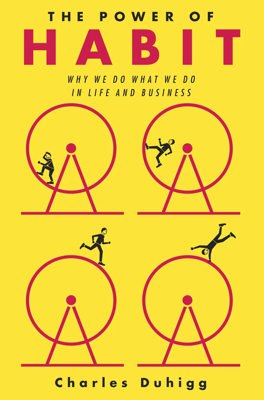Summary
"The Power of Habit" delves into the science of habit formation in our lives, companies, and societies. It underscores the pivotal role of the "habit loop," a three-part process involving a cue, routine, and reward. This loop helps in understanding how habits work and can be altered. The book illustrates real-life instances such as Eugene Pauly’s memory loss counterbalanced by habitual routines, demonstrating habits' independence from memory.
Eugene’s ability to form habits despite severe memory impairment highlights the basal ganglia’s role in habit execution. This underlines habits' persistence even when other brain areas are compromised. The narrative further explores how slight modifications in cues and rewards can shape or replace old habits, offering strategies for personal change and therapeutic interventions.
Through various anecdotes from corporate, sports, and individual perspectives, the book reveals the transformative power of habits. Figures like Tony Dungy and organizations like Alcoa have harnessed this power to achieve remarkable success. For instance, Dungy's coaching led to significant improvements in his teams' performances by modifying players' habits without changing the cues or rewards.
Starbucks has successfully implanted robust habits around willpower in its employees, aiding in personal and professional growth, while companies like Target use habits in customer shopping behaviors to boost marketing strategies. Furthermore, the book touches on the darker side of habits through cases like Angie Bachmann’s gambling addiction, questioning the boundaries of personal responsibility and free will.
Ultimately, "The Power of Habit" not only explores how habits are formed but also how they can be reconstructed, offering insightful, science-backed wisdom for making positive changes.
Per-chapter summary
- The Habit Loop: How Habits Work
- The Craving Brain: How to Create New Habits
- The Golden Rule of Habit Change: Why Transformation Occurs
- Keystone Habits, or the Ballad of Paul O’Neill: Which Habits Matter Most
- Starbucks and the Habit of Success: When Willpower Becomes Automatic
- The Power of a Crisis: How Leaders Create Habits Through Accident : And Design
- How Target Knows What You Want Before You Do: When Companies Predict (And Manipulate) Habits
- Saddleback Church and the Montgomery Bus Boycott: How Movements Happen
- The Neurology of Free Will: Are We Responsible for Our Habits?
